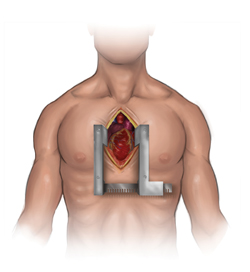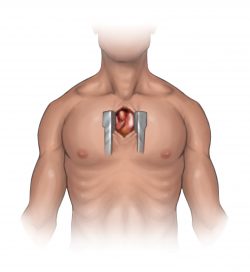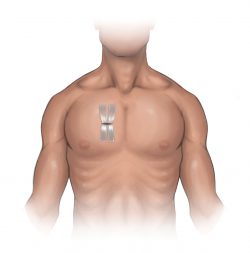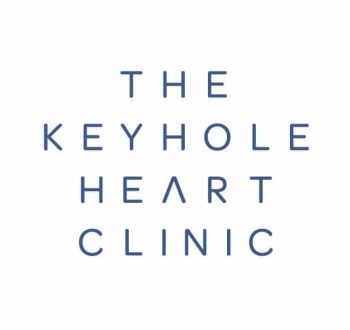Aortic Regurgitation
Aortic Valve Regurgitation Surgery London
With a healthy heart, when the left ventricle of the heart contracts to allow blood to flow towards the body, the aortic valve opens. Once the ventricle relaxes, the aortic valve closes to prevent blood from travelling back into the left ventricle, like a one-way control mechanism.
However, aortic valve regurgitation describes a condition where the aortic valve leaks when the left ventricle relaxes.
What are the Causes of Aortic Regurgitation?
More than 50% of cases of Aortic Valve Regurgitation are due to a weakness in the main outflow tract of the heart leading to dilatation of the ring or “annulus” of the aortic valve. This “annuloaortic ectasia” forces the three aortic valve leaflets apart, producing leakage.
In addition, the aorta can enlarge and become aneurysmal. The cause of this condition is unknown in most instances, but it can also be associated with other conditions such as Marfan syndrome, old age, aortic dissection and syphilis (very rare nowadays, but still worth mentioning).
In 10 to 15% of cases of Aortic Valve Regurgitation, the aortic valve is “bicuspid” (made up of two leaflets) rather than “tricuspid” (made up of three leaflets). The turbulent flow of blood across this bicuspid valve leads to premature destruction of the valve leaflets. Other conditions producing Aortic Valve Regurgitation include rheumatic fever, infective endocarditis and connective tissue disorders.
What are the Aortic Regurgitation Symptoms?
Acute Aortic Regurgitation is a serious condition which produces sudden heart failure. Common Acute Aortic Regurgitation symptoms and signs are severe shortness of breath, and ankle swelling. Acute Aortic Valve Regurgitation often occurs as a result of infection of the valve and is a surgical emergency, without which the condition has a high mortality rate, but fortunately, it is not very common.
Chronic Aortic Regurgitation (slow onset) is much better tolerated, since the heart has time to accommodate to the gradually worsening leakage of the aortic valve. It does this by dilating and increasing in thickness. Over the course of time, the heart becomes inefficient and the volume overload can lead to leakage of the mitral valve. Chronic Aortic Regurgitation symptoms include shortness of breath, swollen legs, and palpitations.
What is the medical treatment for Aortic Valve Regurgitation London?
Medical therapy can control the Aortic Regurgitation symptoms for many years. Drugs such as vasodilators, ACE inhibitors, and diuretics are commonly used to deal with Aortic Valve Regurgitation.
Aortic Valve Regurgitation Surgery London:
In the presence of severe Aortic Regurgitation, any one of the following associated features indicate the patient may experience life enhancing benefits with surgical treatment, otherwise known as Aortic Valve Regurgitation Surgery London:
- Presence of symptoms despite best medical therapy
- Severe dilatation of the left ventricle
- Reduced efficiency of contraction of the left ventricle
In most cases, treatment is by aortic valve replacement. Some aortic valves can be repaired, and your suitability for this approach will be carefully assessed at the time of your referral to The Keyhole Heart Clinic.
Aortic regurgitation associated with aortic aneurysm formation needs surgery as soon as possible (once the diameter of the aorta becomes greater than 4.5 cm, and earlier if the valve is bicuspid rather than tricuspid). In many cases, the aortic valve can be preserved by performing aortic valve sparing aortic root replacement (David Procedure).
Keyhole Aortic Valve Regurgitation Surgery London – Treatment Options:
Ministernotomy AVR


The traditional approach to the aortic valve replacement is via a full breastbone break (shown here on the left).
However, experienced surgeons can perform Aortic Valve Regurgitation surgery via a keyhole method, through smaller partial breastbone incisions. This allows improved healing, greater bone stability, and much more subtle and aesthetically pleasing cosmetic results (as shown by the small scar on the right).
Please do note however that the small breastbone incision still requires 12 weeks to heal fully.
Anterior Right Thoracotomy AVR

Anterior Right Thoracotomy AVR is an even more advanced Aortic Valve Regurgitation surgery procedure, that involves a small incision between the ribs on the right side of the chest. This means that no bones are divided; an approach that is very popular with patients since it heals in a few days rather than 3 months. This procedure is very complex and requires the experience of teams like those working with The Keyhole London Heart Clinic.
Transcatheter Aortic Valve Implantation (TAVI)
TAVI is not suitable for patients with a dilated aortic valve ring or in those with aneurysm formation of the aorta pipe.
If you have any questions about Aortic Valve Regurgitation, or any of our keyhole surgeries, please feel free to get in contact with us here, and a friendly member of The Keyhole Heart Clinic will be in touch as soon as possible.
